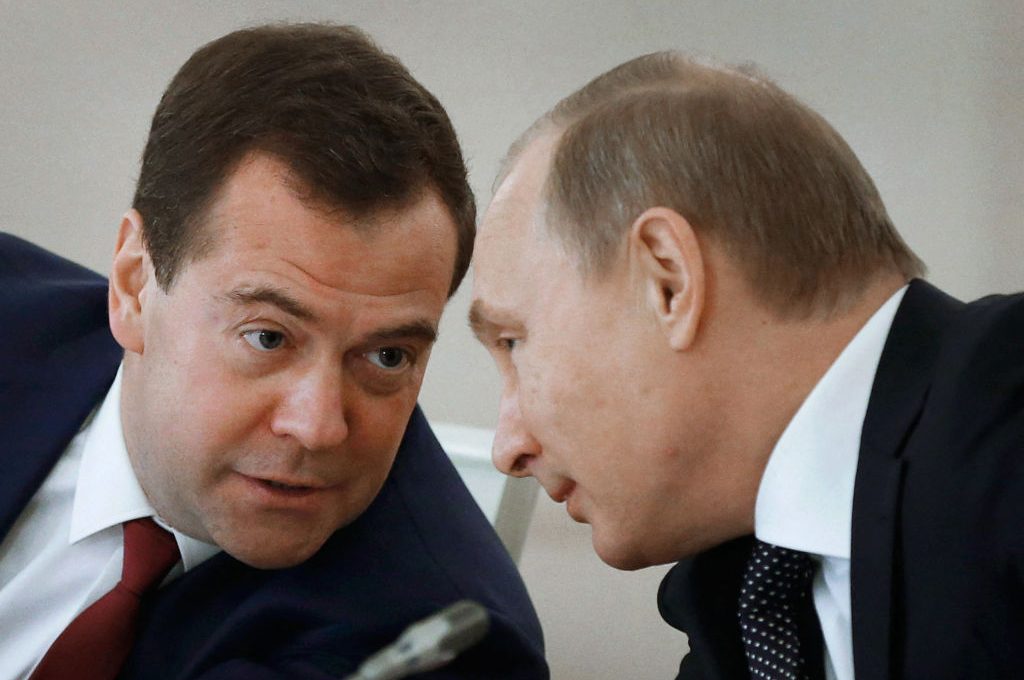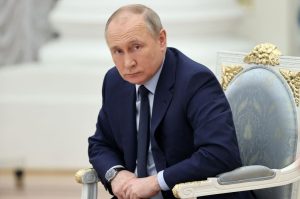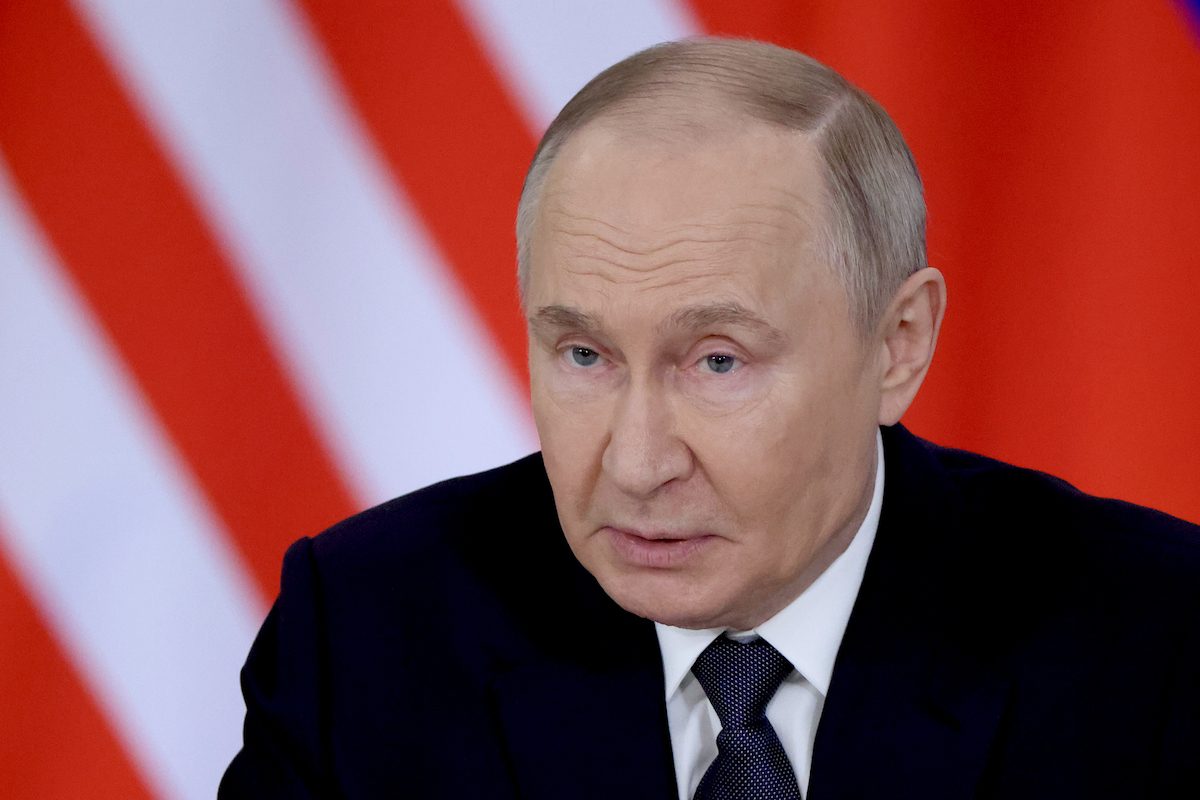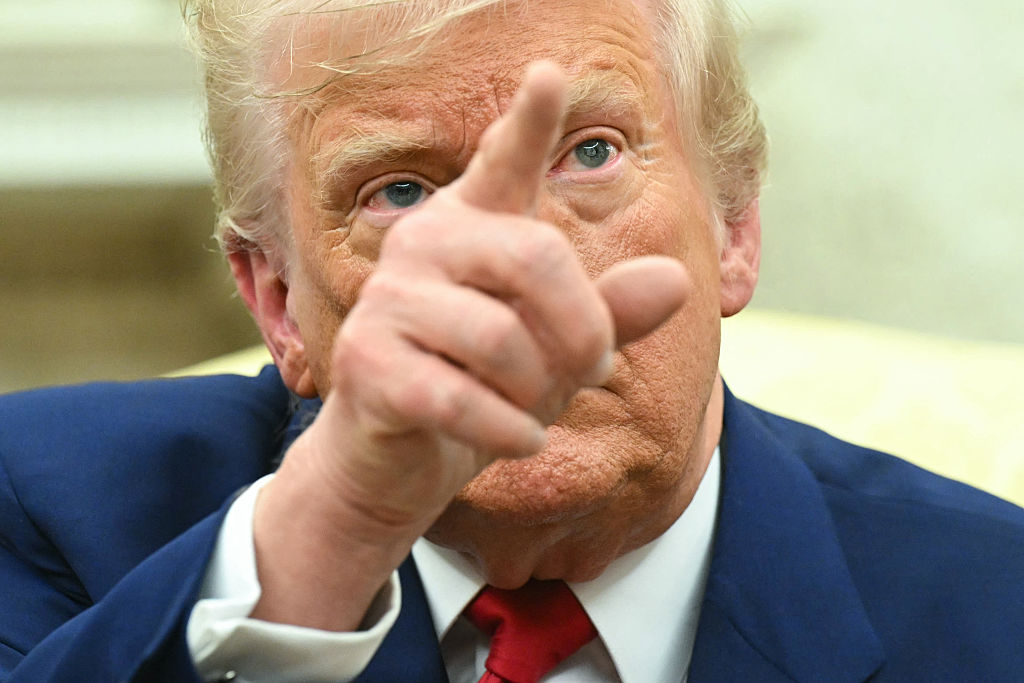It’s a long time since Dmitry Medvedev was last considered a potential liberal hope for Russia. Most recently, after all, he has threatened to bomb any country that seeks to apply the International Criminal Court’s recent arrest warrant on Vladimir Putin and separately read a working group of the Military Industrial Commission a 1941 telegram from Stalin that threatened anyone who failed to meet their targets with being “smashing as criminals who disregard the honor and interests of the homeland.” What is going on?
A lawyer by training, who got to know the Russian president in St. Petersburg during the 1990s, Medvedev ran Putin’s first presidential election campaign in 2000, was his chief of staff between 2003 and 2005 and then first deputy prime minister between 2005 and 2008. Between 2008 and 2012, Medvedev was Putin’s anointed choice of presidential seat-warmer, to observe the forms of term limits and become a symbol of what could be called a kinder, gentler Putinism. He spoke the language of legalism, was a technocrat in love with his Western iPhone and iPad, and was happy to make much of his early passion for Black Sabbath and Led Zeppelin.
Even so, he was essentially the front man with Putin now prime minister and puppeteer. A leaked US diplomatic cable recounted a joke doing the rounds in Moscow: “Medvedev sits in the driver’s seat of a new car, examines the inside, the instrument panel, and the pedals. He looks around, but the steering wheel is missing. He turns to Putin and asks: ‘Vladimir Vladimirovich, where is the steering wheel?’ Putin pulls a remote control out of his pocket and says: ‘I’ll be the one doing the driving.’”
Some in his entourage tried to get him to stand against Putin in a proper election, but Medvedev ultimately handed power back, meekly nominating his former notional underling as the best man for the job. Medvedev became Putin’s prime minister for the next eight years, but as one diplomat observed in 2015, “there is something broken in him now.” In many ways, the job of the prime minister increasingly became that of majordomo at the czar’s court: not one of the monarch’s cronies, but the head butler who makes sure that the belowstairs staff keep the estate running.
He was more and more out of step with the new hawkishness that pervaded the court, especially after 2014. To no-one’s great surprise, in 2020 he was replaced by Mikhail Mishustin, a tough former taxman. But this left Putin with a quandary: what do you do with a problem like Medvedev? Putin has an odd loyalty to his own, and Medvedev hadn’t done anything wrong, he was just no longer doing enough right.
He gave Medvedev the new (and undefined) job of deputy chair of the Security Council. This was probably kindly meant, but in practice left an increasingly depressed Medvedev in the position of class nerd forced to sit at the jocks’ table. Security Council secretary Nikolai Patrushev, the hawkiest of the hawks and a man with a much closer relationship to Putin, officially now worked under Medvedev. In practice, though, he made it clear he had no intention of paying him any attention, and most of his staffers took their lead from him.
By all accounts, Medvedev is now a seriously heavy drinker, but this is not enough to explain the intemperate vitriol he directs towards the West and anyone else whom he can characterize as a backslider or traitor at home. Consider some of his latest hits. In November, Medvedev characterized the invasion as a holy war waged against “crazy Nazi drug addicts” in Ukraine backed by Westerners with “drool running down their chins from degeneracy” to “foil the supreme ruler of hell, whatever name he uses — Satan, Lucifer or Iblis.”
In December, he argued that émigrés who criticize the Kremlin ought to have any assets still in Russia seized and their return barred “until the end of their days,” even if there are no criminal or administrative cases against them, unless they make “public repentance.”
In January, he posted warnings on Telegram that a Russian defeat in Ukraine could trigger a nuclear war, following it up the next month with a claim that Western military aid risked leading to “a total fiasco. Everyone losing. A collapse. Apocalypse. Where you forget for centuries about your former life, until the rubble ceases to emit radiation.”
Now, the ICC has aroused his patriotic ire. First he mused that “it’s quite possible to imagine a hypersonic missile being fired from the North Sea from a Russian ship at the courthouse in the Hague.” Then he warned that any attempt to enforce the warrant on Putin, “the current head of a nuclear state,” would be considered a declaration of war and would be responded by launching “everything we have” at the impudent nation in question.
On one level, this is a former dove (or what counted for one in Putin’s Russia) trying to convince the hawks he’s one of them, albeit with no evidence of any success so far. If anything, their contempt for “Dimon” is all the more marked.
On another, it’s a desperate attempt by a man who notoriously falls asleep during most of Putin’s main public addresses, to continue to prove his loyalty and maybe even utility to the boss. This points to a growing weakness in late Putinism. With the future unpredictable and rivalries growing ever sharper, no one dares step away from power even if some, like former finance minister Alexei Kudrin, now a senior figure at the technology giant Yandex, can transform political into economic power. Previously, there had been speculation that Medvedev could rusticate in an honorific position such as the rector of a university in St. Petersburg, but no longer.
To withdraw fully from politics now is to lose your access and, increasingly, your security. To use the Russian gangster term that has now become widely used in politics and business alike, that is your krysha, your roof, or your protection. As in Soviet times, Putinism is increasingly becoming a gerontocracy, as everyone clings desperately to power for as long as they can, terrified of losing the perks and protections it offers. Policy becomes ossified, slavish conformity to the official line is mandatory, and the next political generation become increasingly impatient for their hour to come.
This article was originally published on The Spectator’s UK website.

























